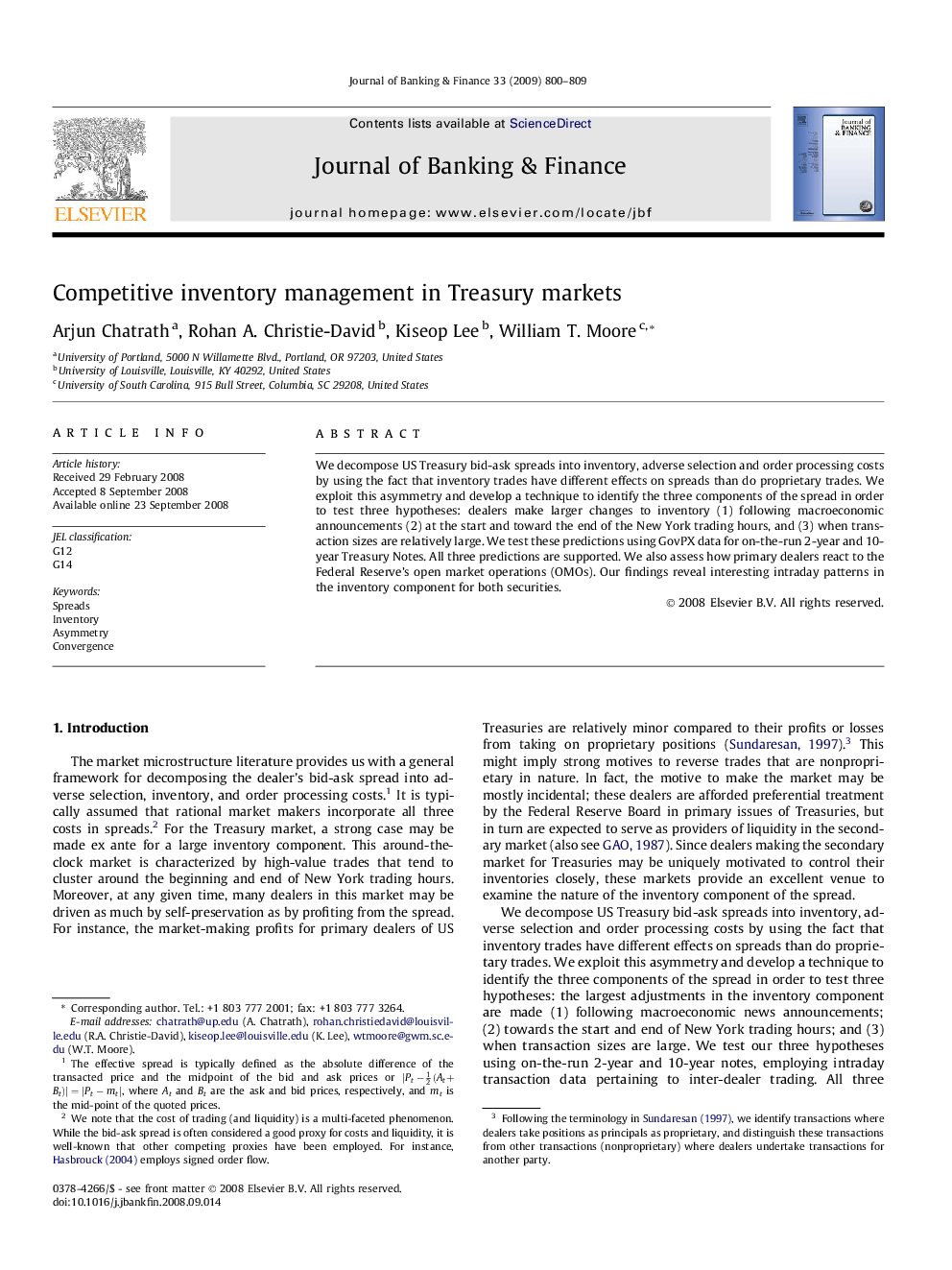| Article ID | Journal | Published Year | Pages | File Type |
|---|---|---|---|---|
| 5090424 | Journal of Banking & Finance | 2009 | 10 Pages |
Abstract
We decompose US Treasury bid-ask spreads into inventory, adverse selection and order processing costs by using the fact that inventory trades have different effects on spreads than do proprietary trades. We exploit this asymmetry and develop a technique to identify the three components of the spread in order to test three hypotheses: dealers make larger changes to inventory (1) following macroeconomic announcements (2) at the start and toward the end of the New York trading hours, and (3) when transaction sizes are relatively large. We test these predictions using GovPX data for on-the-run 2-year and 10-year Treasury Notes. All three predictions are supported. We also assess how primary dealers react to the Federal Reserve's open market operations (OMOs). Our findings reveal interesting intraday patterns in the inventory component for both securities.
Related Topics
Social Sciences and Humanities
Economics, Econometrics and Finance
Economics and Econometrics
Authors
Arjun Chatrath, Rohan A. Christie-David, Kiseop Lee, William T. Moore,
